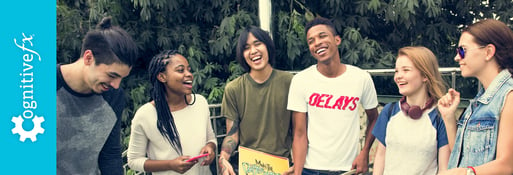Parents love their children and want to provide the best possible support and care for their children. When your child or teen has a concussion or is trying to cope with long-term concussion symptoms, it can be challenging to know what to do and how much to do for your child. We understand watching your loved one be in pain, sort through the frustration and changes that come with experiencing a brain injury is not an easy adjustment for you.
Naturally, we want to reduce the suffering of those we love, we begin to do more things for them with the intention to help them get better faster, or to reduce their level of stress. Sometimes the desire to take care of them can shift the relationship dynamic to a more codependent relationship. As children become young adults, it is important to instill a sense of interdependence, a space that encourages the teen to learn to be independent with support, guidelines, and a safety net. This empowers them to grow into healthy independent adults. This is also true for those who have a concussion and are learning what they are truly capable of.
When teenagers are injured it is not uncommon to see an drastic shift back to being more codependent on the parents. Developing a fully codependent relationship is not healthy for the recovery process, especially if this is limiting their ability to recover.
Finding the right balance of being there, supporting them, and then doing everything for them can seem like a fine line. For example, when your child is really struggling to focus on completing their homework, you may be tempted to do the math assignment for them or just give them the answer, but giving them the answer does not teach them or help them learn how to solve the math problem.
We know it can be hard to watch someone you love struggle or do things that may seem impossible for them. We understand how tempting it is to do things for your child because you love them. Giving in to temptation can be detrimental to their ability to recover and will establish an unhealthy codependent relationship.
The best way you can support your injured teen is to encourage them, cheer them on, and love them, but do not do everything for them. The end goal is that your child will be self-sufficient and able to handle their challenges in a healthier way. This means they need accountability and responsibility.

Being supportive of your child without the dependency may appear differently than it did before their injury. We encourage you to look at what you need to do in order to adapt. Having a conversation with your child about what this now looks like, will also help maintain a level of responsibility from your teen. This also empowers the child to play a more active part in their recovery and they can begin to see the importance of self-growth throughout their recovery.
This new level of support is important to your child because it instills in them a sense that they are still very capable even with their injury. Helping your child know that they can do something hard is the first step to giving them healthy self-sufficiency and will support them in making bigger strides throughout their recovery, and moving forward in life.
Obviously, if they have a more severe traumatic brain injury this will be unique to their individual circumstances. For example, those who are in a wheelchair because of paralysis will need a different level of care and support than those who are struggling with balance issues or struggle to walk straight.
The most important thing for you to know is that you are a huge support system to your child, and every effort you take to help them matters! At Cognitive FX, we want to thank you for all you are doing to ensure that your child has the best chance and the best opportunity to recover. We know this is not easy for you or for them. We know that recovery takes resilience and courage, and we commend you and your child for all you are doing together to face post-concussion syndrome (PCS), and make the best of the challenges you face.






